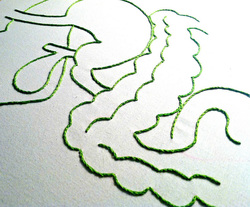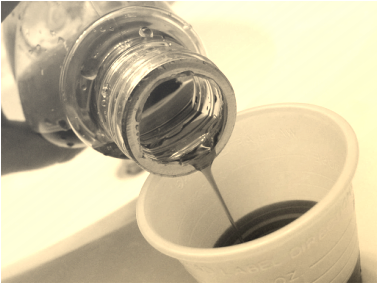
Irritable bowel syndrome (IBS) is the most common gastrointestinal disorder. As well, IBS is one of the most common medical problems seen by physicians and accounts for up to 12% of total visits to primary care providers. Since IBS is such a common problem, I thought it was important to discuss the many clinically proven alternative medical treatments naturopathic medicine has to offer people with IBS.
How is IBS diagnosed?
IBS is a diagnosis of exclusion given by medical doctors when it is clear that a patient does not have a more serious gastrointestinal problem like Irritable Bowel Disease (Crohns or Ulcerative Colitis), Celiac disease or a dysenteric infection. Once more serious possibilities are ruled out, a person will likely be given the catchall diagnosis of Irritable bowel syndrome (IBS).
Is IBS real or all in the head?
There is clear evidence that IBS is real. Research has shown there to be measurable differences between a person with IBS and a person without it:
· Low grade inflammation: Irritable Bowel syndrome patients show no identifiable inflammation when samples of their colonic tissue is looked at under the microscope, however some people do show increased production of inflammatory chemicals suggesting low grade inflammation is present but not seen.
· Altered gastrointestinal tract motility: Studies have shown that there are significant delays found in the mechanisms involved with the movement of food through the digestive tract in people who suffer from IBS.
· Altered Bacteria in the Gut: Studies have found patients with IBS produce significantly more hydrogen in their stomachs than people without IBS. The colonies of bacteria found in IBS patients have less “good” bacteria such as bifidobacteria and lactobacilli and higher concentrations of the bacteria enterobacteriacae.
· Enhanced Internal Stomach Perception: Patients with IBS have been found to more awareness of sensations in their guts than people without IBS.
Are Some People More at Risk than Others for Developing IBS?
The following are a few risk factors that have been shown to increase the likelihood of acquiring IBS.
· Genetic: It has been shown that people have a genetic predisposition to acquiring IBS. IBS is not predisposed by having a parent with IBS, but by having a parent with alterations in their nervous system’s response to external stimuli.
· Previous Gastrointestinal Infection: It appears to that about 10% of people with IBS acquired it following an episode of dysentery.
· Antibiotics use: Two studies have found an association between antibiotic use and increased frequency of IBS symptoms. This may be because the antibiotics altered the gut bacteria or that the antibiotics caused damage and inflammation to the gut lining.
· Stress: Stress and traumatic life events have frequently been reported to have preceded the initial onset f IBS symptoms and symptom flare ups in patients suffering from IBS. Additionally IBS has consistently been found in patients with depression, panic disorders, and generalized anxiety disorder.
What do Western Doctors do for IBS?
Many agents are currently being used in western medicine for the treatment of IBS and no one agent has been proven particularity effective. The therapeutic gain (difference in treatment response between placebo and the active therapy given) has been minimal with these agents. As well, there are adverse side effects to many of the drugs given and therefore it is worthwhile to investigate natural medical treatments as a possible alternative to pharmaceutical agents.
What Are Some Alternative Solutions to IBS?
Probiotics:
As mentioned above, there has been shown to be colonies of abnormal gut bacteria in the intestinal tracts of people with IBS. This is occasionally due to heavy antibiotic use where the concentrations of beneficial bacteria decrease and the numbers of harmful bacteria rise. Bad bacteria cause gas and putrefaction of food, and diarrhea. Therefore one of the key therapies now being regularly employed in the treatment of IBS is the use of probiotics (good bacteria).
Probiotics which contain good bacteria such Lactobacillus acidophilus are a useful choice in IBS as was shown in studies as early as 1955. A systematic review and meta-analysis of randomized, controlled trials found probiotic use to be associated with improvements in IBS symptoms compared to placebo and to produce a real reduction in abdominal pain. Efficacy in IBS has been shown to be dependant on the type of bacterial strain. L. fermentum and L. plantarum are two strains that have shown in studies to be very helpful in IBS.
Where can I get Probiotics?
Fermented foods (yogurt, kim chi and sauerkraut) are a great natural source of probiotics. One can also simply take probiotics in capsules, tablets and powder form. In my opinioned power form probiotcs are the most effective for results in IBS as they work in the upper intestinal tract, don’t have binders, and can be incorporated into food and drinks easily. Unfortunately, they have a much higher cost than fermented foods.
Fiber:
A recent systemic review and meta-analysis found fiber to significantly improve IBS symptoms especially in IBS where constipation is the predominant symptom. Note however that it did increase abdominal pain somewhat. Soluble fibers like ground flaxseeds, slippery elm powder, psyllim husks, and oat bran have been found to be most effective.
Fluid Intake:
Adequate fluid intake is very important in the treatment of IBS. This would be 2-2.5 litres of water/fluid a day.
Exercise:
Has been shown to significantly lessen the constipation associated with IBS. It also relieves stress and improves mood.
Herbal Medicine:
There are many herbs that are very helpful for the treatment of IBS. Some are used to help stop the diarrhea or alternatively to increase motility or act as a laxative in constipation. Others herbs help sooth the digestive tract in general. It is also possible to use herbs that help deal with stress by supporting the nervous system, which can decrease the intensity of the IBS symptoms. A proper herbalist or Naturopathic Doctor trained in herbal prescribing can come up with the right formula to manage the symptoms of IBS for each individual case.
Special Herbal Note: Tumeric
Turmeric, the common spice, acts as anti-inflammatory agents in the gut. Turmeric in particular, was found to significantly reduce abdominal pain and discomfort in IBS.
Diet:
It is not surprising that people who come to me with irritable bowel syndrome (IBS) want to know if a food they consuming might have some influence on the IBS symptoms. Many people know already that their signs and symptoms worsen when they eat certain foods. The verdict is not out on the role of food intolerance in irritable bowel syndrome. From my clinical experience however, and the clinical experience of many practitioners in my profession it is clear that eliminating problem foods from ones diet is essential in the treatment of IBS. There are good blood tests (IgG Antibody Food Intolerance Blood Tests) that can help a person find their problem foods by identifying which foods their bodies are having an immune response to. I use this test on a daily basis with my patients in my practice in Jerusalem.
Stress Reduction:
Yoga, Deep breathing exercises and mediation are all good ways to reduce stress which lessens the severity of IBS.
In conclusion, IBS is one of the most common complaints seen in a doctors office and yet it is one of the least understood problems. Western medicine offers very little in the way of solutions to this problem and the pharmaceutical drugs given have very little effect and adverse side effects. As noted, there are lots of evidence based clinically proven alternative treatments to IBS. If you have IBS maybe it is in your best interest to try some of the many natural alternatives available to help you resolve this issue once and for all!
Dr. Anders Nerman, N.D.
Dr. Anders Nerman, N.D. is a Naturopathic Doctor with an Integrative Family Medical practice in Wolfson Medical Center in Jerusalem, Israel. For more visit www.drnerman.com or call 972-54-427-8667.
Information is provided for informational purposes only and is not intended as a substitute for the advice provided by your physician or other healthcare professional. Always speak with your physician or other healthcare professional before taking any medication or nutritional, herbal or homeopathic supplement, or adopting any treatment for a health problem.


 RSS Feed
RSS Feed
